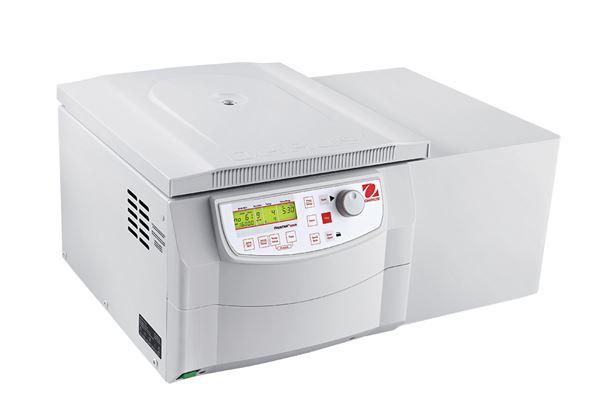OHAUS centrifuges are high-quality laboratory instruments designed for efficient and reliable sample separation. They are widely used in research, clinical, and industrial applications, offering precise performance, user-friendly operation, and robust construction.
Key Features of OHAUS Centrifuges:
Laboratory centrifuges are versatile tools that play a vital role in numerous fields. Some of the most common applications include:

Types of Laboratory Centrifuges
Depending on your laboratory’s specific needs, you may choose from several types of centrifuges. Each type is designed to meet particular requirements in terms of capacity, speed, and application.
Microcentrifuges: Microcentrifuges are compact and typically used for small-volume samples, such as in molecular biology applications. They are ideal for spinning down small test tubes, usually in the range of 1.5 to 2 mL. These centrifuges offer high speeds and precise control, ensuring efficient separation of components in small sample sizes.
Key Features:

Benchtop Centrifuges: These centrifuges are suitable for larger samples than microcentrifuges and are commonly found in research and clinical laboratories. They offer larger sample capacities, typically ranging from 50 mL to 500 mL, and can be equipped with different rotors to accommodate a variety of sample types.
Key Features:
High-Speed Centrifuges: High-speed centrifuges are designed for applications that require extremely high rotational speeds, often exceeding 20,000 rpm. They are commonly used in biochemical, clinical, and environmental research where the separation of particles at high speeds is necessary.
Key Features:
Ultra-Centrifuges: Ultra-centrifuges are designed for research that demands the highest speeds, typically over 100,000 rpm. These centrifuges are ideal for separating macromolecules, proteins, and other minute particles that require extreme force to isolate. Ultra-centrifuges are often used in research areas such as genomics, proteomics, and nanotechnology.
Key Features:
Refrigerated Centrifuges: Refrigerated centrifuges are equipped with a cooling system to prevent heat buildup during high-speed spinning. This feature is crucial for temperature-sensitive samples, such as enzymes, cells, or DNA, which can degrade if exposed to excessive heat.
Key Features: